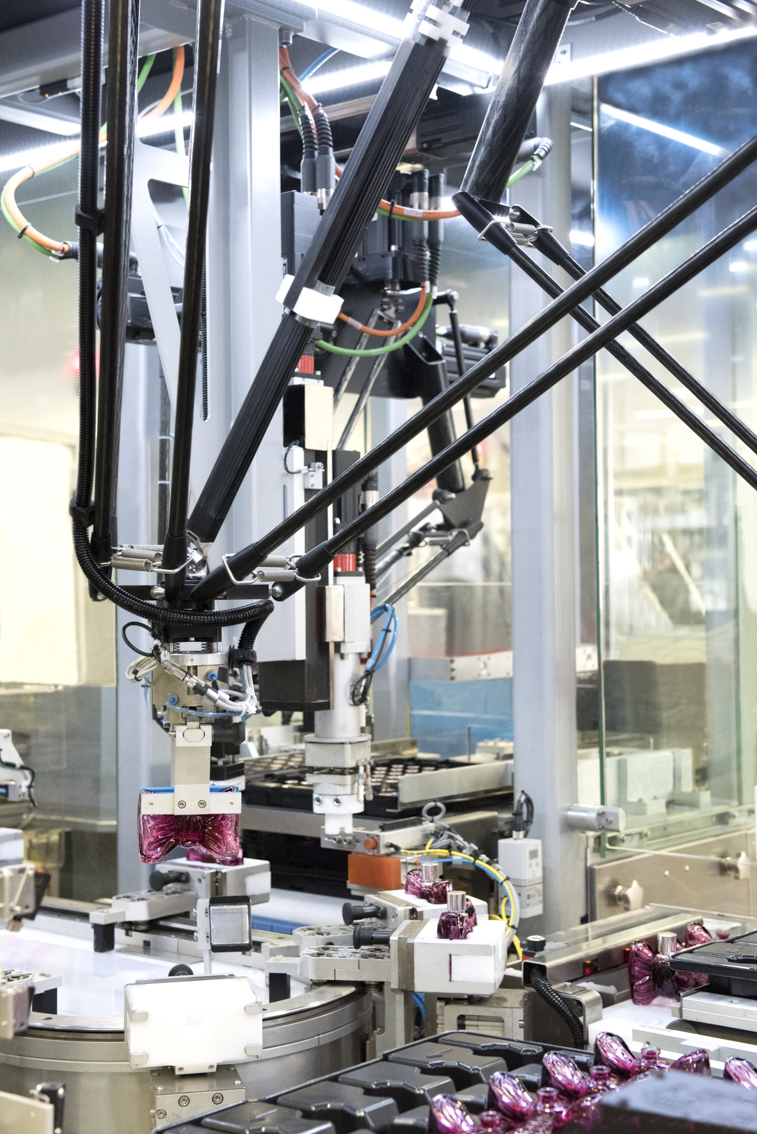
Technology, luxury brands, and retail – a fashionable combination
“Every company is a technology company,” is a phrase that’s growing in relevance as each day passes.
Europe’s rich heritage of luxury brands – many which are more than 100 years’ old – are a fitting example of companies steeped in tradition, who have maintained their heritage, while embracing transformation to remain competitive in an ever-evolving landscape.
Today, these brands are operating in an environment full of newcomers looking to disrupt the market with new digital experiences, personalisation, on-demand support, and more. In a world where digital natives are an increasing norm, and consumer expectations at an all-time high, technological and cultural transformation are key.
What does digital transformation mean? We have a simple definition. It’s about making people’s lives easier – whether they’re your employees, or your customers. Our goal is to make consumers’ lives easier.

The essence of transformation
Digital transformation is a term that’s used so frequently, its meaning is often diluted. For Stéphane Lannuzel, Chief Digital Officer of Operations at L’Oréal, it’s about focusing on the core basics.
A 109-year-old company, L’Oréal’s adoption of technology has allowed it to meet the needs of customers, while improving the workflow and efficiency of its employees. One such example is the company’s agility of operations, and time to market – whereas it would previously take 18 months to develop new products, it now takes six.
Using artificial intelligence (AI) vision capabilities, for example, also allows the company to have a fully digital changeover system in place during product manufacturing processes. Instead of having to manually change equipment modules in machinery to set up the creation of different products, the process is now done automatically.
AI algorithms, machine learning and data are also used to predict demands based on a wide variety of data, gathered from social media, weather and financial markets, to name a few. Using this technology enables L’Oréal to forecast in a much more efficient manner, saving time and energy, and reducing costs.
The secret to brand and retail success? Treat every customer like a VIP
While technology is clearly playing a vital role in the company’s growth, it’s important to note that people still have a key role to play. AI tools, for example, are also used by L’Oréal to detect the most important parameters in a product’s production process, but human beings are the ones that use these insights to make further improvements. AI is about augmenting human capabilities, not replacing them.
Gabriele Tazzari, Director of Research and Development, YOOX NET-A-PORTER GROUP supports the partnership of technology and AI in particular and human beings: “The need for innovation has become vital. AI is a game-changer which can improve human capabilities.”
The company is currently developing an AI-powered virtual personal stylist tool that can recommend products to customers based on image recognition and their personal preferences, as well as an AI tool which can suggest different outfit options to help complete a particular look. This level of hyper-personalisation increases the chances of the online store’s customers forging a closer relationship with the retailer, thanks to a superior level of service.

Another example of technology benefiting both retailers and consumers, can be found in EON – a company which creates digital ID tags that can be embedded within products to provide end-to-end connectivity across the entire value chain, while
The company’s ground-breaking washable RFID thread tag can be seamlessly and invisibly integrated into clothing, giving each garment a unique ID, and the ability for its authenticity to be guaranteed. This is particularly important in the luxury sector, where consumers want to ensure that they are receiving authentic items for their money.
Natasha Franck, EON founder and CEO believes that “Building greater transparency directly into a garment opens up incredible opportunities for supply-chain tracking, consumer engagement, product authentication, and even smart check-out. It’s a boon to luxury brands looking to thwart the flow of counterfeits hitting the market.”
In addition, these connected garments are also more sustainable, as the RFID thread can also store details of what materials they’re made from, so that they can be recycled. In Natasha’s words, “We can’t recycle it if we don’t know what’s in it.”

The importance of culture
Technology is only one piece of the transformation puzzle. Just as important, but often overlooked, is the cultural component. Microsoft research has shown that you can spend money and throw the latest technology into an organisation, but without the right digital culture in place, the effectiveness of that technology will be noticeably reduced, and not used to its full potential.
YOOX NET-A-PORTER’s Gabriele Tazzari believes that “Diversity is important, and so is allowing people to cultivate their passions. The ‘can-do’ attitude of makers is very important.” Creating this digital culture environment which gets the best out of both people and technology, is a task that falls on business leaders.
They must champion technology as critical in helping their companies thrive, and encourage the experimentation and use of new tools, to increase adoption. In other words, a company with a strong digital culture encourages the use and support of technology to get work done in the most effective way possible.
At Ermenegildo Zegna – a 108 year old luxury Italian fashion house, famous for its fine quality textiles and fabrics – this concept of digital culture has no organisational boundaries: “Companies should stop thinking about the concept of chief CTOs (Chief Technology Officer), as every decision within every department in an organisation should have a digital component attached to it,” says Edoardo Zegna, head of content and innovation, at Ermenegildo Zegna.
L’Oréal’s Stéphane Lannuzel adds that “At first, there can be resistance to new technology in an organisation, but you need to be resilient and persist. Sometimes technology isn’t perfect, but you need to start somewhere.”
Combining the right culture with the power of technology such as AI and data, is a powerful transformative force which transcends industries and disciplines. In the case of luxury goods and retail, we’ve seen the benefits that this combination can have – even for companies steeped in decades of tradition. Embrace evolution, and success will follow.














